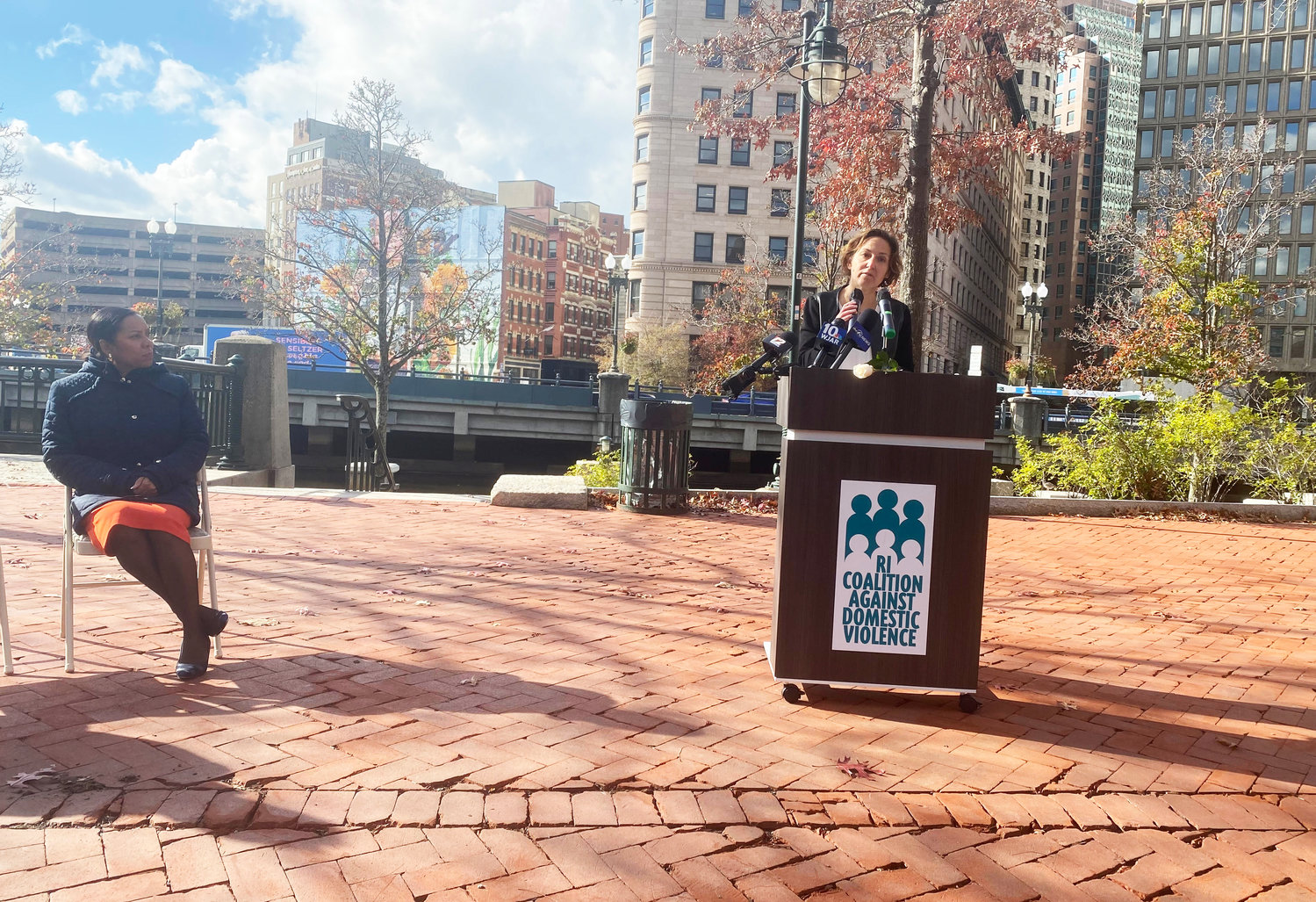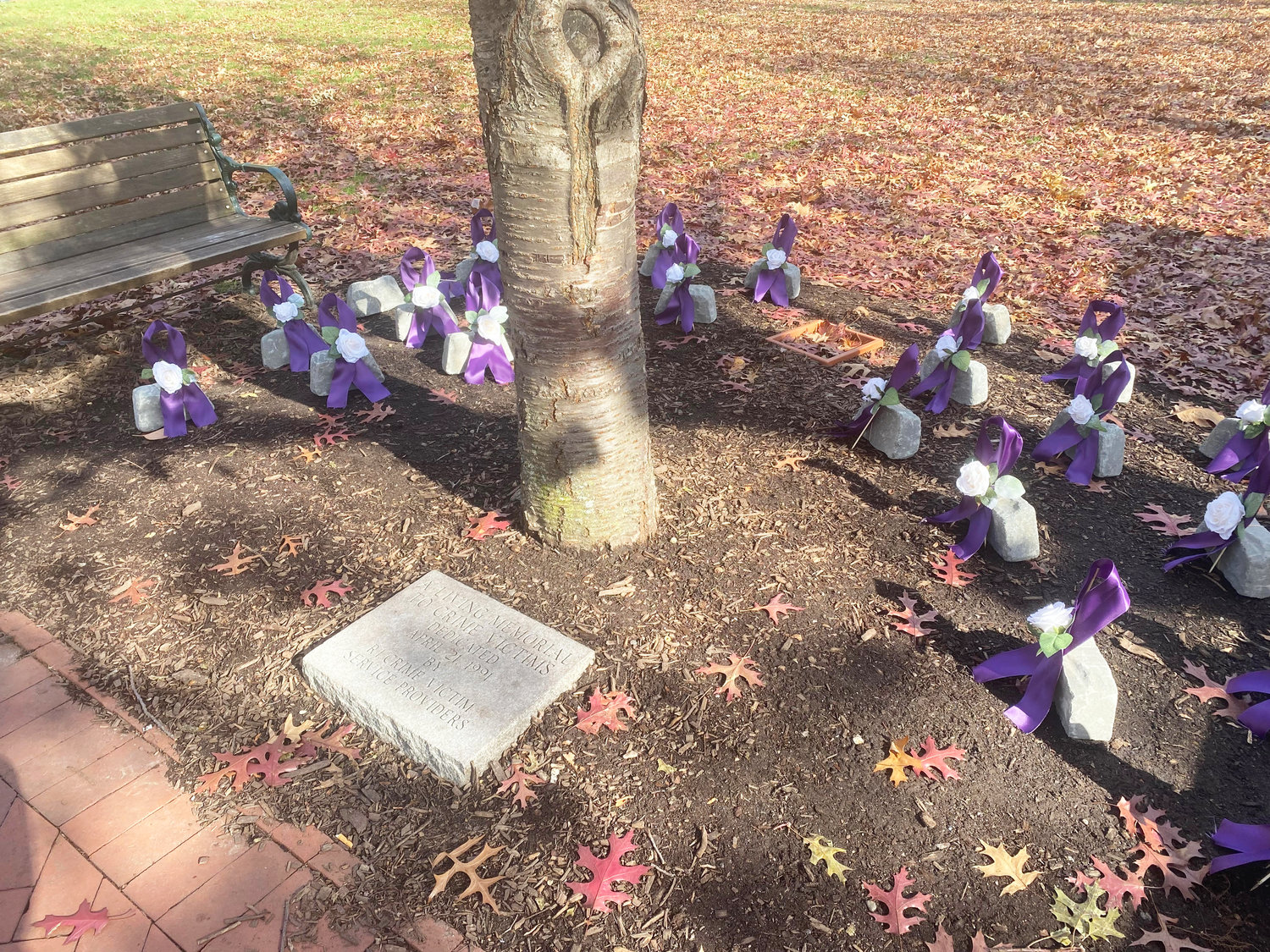‘Women get shit done, just saying’
At three events held last week, women in leadership roles made it clear that they were changing the way that the business of justice, behavioral health, and building better communities gets achieved. Are you listening, Rhode Island?
Their strong voices – along with the other women leaders at two other public conversations held last week – could represent a sea change for the better, if Rhode Islanders are willing to listen.
[Editor’s Note: The headline for this story is taken from a list of takeaways presented by author Beth Macy, during her presentation last week at Hollins University in Roanoke, Virginia, talking about her reporting conducted in her books, Dopesick and Raising Lazarus.
The provocative phrase serves as the connective thread for three separate events that occurred last week:
• The public reveal of the results of the fourth annual R.I. Life Index, a partnership between the School of Public Health at Brown University and Blue Cross and Blue Shield of Rhode Island, on Monday afternoon, Nov. 14. The extensive survey of residents took the pulse of how Rhode Islanders viewed the health of the state. The R.I. Life Index report card was mediocre at best.
• A panel discussion by the R.I. Latino Policy Institute and the Latino Mental Health Network at Rhode Island College, “Addressing the Mental Health Pipeline,” held on Tuesday evening, Nov. 15. The focus of the conversation was about how to build a more inclusive pipeline in the mental health and behavioral health field among Latinos and other historically underserved communities.
• The release of the report by the R.I. Coalition Against Domestic Violence on “Domestic Violence Homicides in Rhode Island, 2016-2020,” on Thursday morning, Nov. 17. The somber ceremony sought to give voice to the victims and to create the momentum to move forward with solutions – a new domestic violence court, and better law enforcement – to save lives.
After attending each event in person as a reporter, ConvergenceRI recognized that there was a common thread to the three events: the critical importance of women in leadership roles who are working to change the outcomes. The astute observation made by author Beth Macy – that “women get shit done” – seemed to be a self-evident truth of our current landscape.
PART One
PROVIDENCE – Less than 24 hours after a judge acquitted an off-duty police officer of assault after he punched a Black women in the face at a public rally at the State House, the R.I. Coalition Against Domestic Violence held a somber program to release the report, “Domestic Violence Homicides in Rhode Island 2016-2020.”
The findings of the report were incontrovertible:
• Between 2016 and 2020, 26 people lost their lives to domestic violence homicides in Rhode Island.
• The majority of homicides, 21, involved perpetrators who killed their intimate partners, or killed bystanders in an incident related to intimate partner violence.
• Some 43 percent of the intimate partner homicides were committed with firearms. The report made clear that “the presence of a firearm can play a significant role in escalating violence to a lethal level.” Women in abusive relationships are five times more likely to be killed if their abusive partners had access to a firearm, according to the report.
• The report also found that 19 percent were killed by being beaten, either with hands or fists or blunt instrument, 19 percent by stabbing, 10 percent by strangulation, and 10 percent were killed using a vehicle.
“It’s not just guns or knives. It’s hands that kill, too,” said Cheryl Silva, the mother of one of the domestic violence murder victims, speaking at the ceremony. Silva’s daughter Jennifer had been thrown out of the third-floor of a building to her death by her abuser, Silva shared at the event. [What Silva had to say was featured in the lede paragraph of The Boston Globe story by Alexa Gagosz.]
What the report said
The compelling 24-page report shared in detail what happened to each of the 26 murder victims. It also made specific recommendations about what to do better:
• Establish a dedicated, high-risk Domestic Violence Court in Rhode Island within the R.I. District Court to promote greater victim safety, informed judicial decision-making and offender accountability in critical misdemeanor domestic abuse cases.
• Fully enforce laws that bar perpetrators and those subject to domestic violence restraining orders from possessing or obtaining firearms.
At the Thursday morning gathering at the field of memorials off South Main Street, the speakers included: Lt. Gov. Sabina Matos, R.I. Deputy Attorney General Adi Goldstein, RI Coalition Against Domestic Violence Executive Director Lucy Rios, and Zaida Hernandez, a member of Sisters Overcoming Abusive Relationships [SOAR].
The messaging from all of the women who spoke was quite clear: better risk assessment of domestic violence threats by law enforcement; better screening to keep guns out of the hands of those previous domestic violence perpetrators with restraining orders; and better listening by the courts and the police to believe women when they say that their lives are in danger. Collectively, the women were saying: “No more!”
Who talks, who listens, who hears, who acts?
Later that same day, driving back from a physical therapy appointment, ConvergenceRI had been listening to the radio, taking the temperature of the “intemperate” on WPRO. The 4 p.m. news, delivered by WPRO’s anchor, Steve Klamkin, featured the “Domestic Violence Homicides in Rhode Island 2016-2020” report as one of the top local stories.
However, that news being reported by his own station fell upon the apparently deaf ears of radio talk show host Dan Yorke, who did not mention the report. Instead, Yorke spent most of his airtime discussing the pros and cons of the acquittal of the off-duty police officer, for the second day in a row.
The question is: Why was it so difficult to recognize the connection between what the R.I. Coalition Against Domestic Violence study had found about 26 domestic violence murders and the violence that occurred at a public rally, protesting the U.S. Supreme Court decision overturning Roe vs. Wade?
State Senate Candidate Jennifer Rourke, who had been the victim punched by the off-duty Providence police officer, had issued a statement following the ruling by R.I. District Court Judge Joseph Houlihan.
“As a Black woman and a victim of physical assault from a police officer, I stand where many survivors have stood before – with our voices silenced and stories dismissed, abandoned by the state structures that were sworn to protect us and keep us safe,” Rourke said, as reported in a story published by UpriseRI.
“This verdict makes it clear that these structures are not intended to keep us safe, they are only intended to protect their own,” Rourke continued.
“It was not safe for me to stand on the State House steps at a peaceful protest for our reproductive rights,” Rourke said further. “It was not safe for me to seek healthcare after an alleged assault without it bringing financial harm to my family”.







